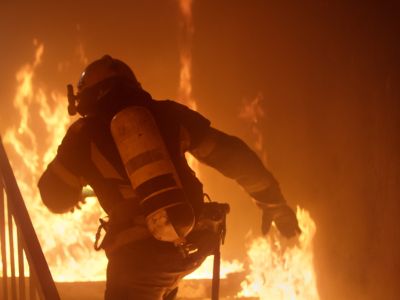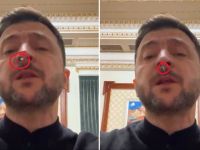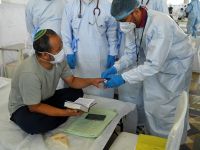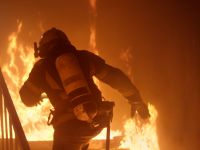The Middle East remained a hotbed of terrorism last year, with Iran, Iraq and Syria singled out as among "state sponsors of terrorism," according to a US government report.
The list of seven "state sponsors" - Cuba, Libya, Iran, Iraq, North Korea, Sudan and Syria - remained unchanged for the eighth year running but Bush's demand for international cooperation gave them a chance to placate Washington.
But while the State Department's annual "Patterns of Global Terrorism" report was harshly critical of Iran, Iraq and Syria, it was more measured in its assessment of the Palestinian Authority (PA) and its leader Yasser Arafat.
"PA security services did thwart some attacks aimed at Israelis. They also discovered and confiscated some caches of weapons and explosives," the report noted.
It mentioned without comment Israel's seizure in January 2002 of the Karine A freighter while it was trying to smuggle 50 tons of weapons to Palestinians in the West Bank and Gaza.
The State Department's report also noted that Arafat had condemned the September 11 terror attacks on US targets and clearly distanced himself from suspected terror mastermind Osama bin Laden.
But the department deplored the fact that security cooperation, which had generally been effective before the second Palestinian intifada (uprising) launched in September 2000, was "sporadic."
"Throughout the year, Israel’s destruction of the PA’s security infrastructure contributed to the ineffectiveness of the PA," allowing Hamas and other anti-Israeli groups to beef up their presence in the Palestinian territories, the report added.
"Certainly the military activity there did do a great deal to damage the security capability and the security apparatus of the Palestinian Authority," commented State Department counterterrorism coordinator Frank Taylor, briefing reporters on the report.
The department also noted that Arafat heeded President George W. Bush's calls for effective and lasting measures to combat terror.
The report concluded that members of Arafat's Fatah movement had taken part, however, in attacks on Israel through the Tanzim organization and the Al Aqsa Martyrs Brigade.
It said Tanzim was "made up of small and loosely organized cells of militants drawn from the street-level membership of Fatah." "Some Tanzim militants also were active in Al Aqsa Martyrs Brigade," it added.
The report noted attacks on Palestinian civilians and properties in Gaza and the West Bank by Jewish extremists and settlers in 2001, saying at least five people were killed. "Investigations into many of these attacks produced inconclusive results, leading to several arrests but no formal charges," it added.
Iran, which was not implicated in the September 11 attacks, was named in the report as "the most active state sponsor of terrorism in 2001."
Iran's Revolutionary Guard and its intelligence and security ministry "continued to be involved in the planning and support of terrorist acts and supported a variety of groups that use terrorism to pursue their goals," the report said.
It cited Tehran's "continued support for anti-Israel groups like Hizbullah, Hamas, Palestinian Islamic Jihad and the Popular Front for the Liberation of Palestine-General Command (PFLP-GC).
However, while Iran continued to back groups opposed to the Middle East peace process, the report noted that Tehran seemed to have reduced its support for other terrorist groups, notably in the Arab Gulf, Africa, Turkey and Central Asia, according to the report.
In Tuesday's report, Iraq came in for harsh criticism, in particular for its refusal to speak out against the September 11 attacks.
Iraq also continued to support several groups identified by the United States as "foreign terrorist organizations," including Kurdish separatist Kurdistan Workers Party (PKK), the Iranian People's Mujahadin, the Palestine Liberation Front and the Popular Front for the Liberation of Palestine.
On Syria, the report said Damascus had been cooperating with US anti-terror efforts in the wake of September 11, but continued to house a number of anti-Israel groups.
The department noted however that countries such as Libya and Sudan made some progress while they had yet to fully break with terrorism.
"Sudan and Libya seem closest to understanding what they must do to get out of the terrorism business and each has taken measures pointing it in the right direction," the report said. (
It said Libya appeared to have curtailed its support for "international terrorism" but may have maintained residual contacts with a few groups.
On Sudan, it said the Khartoum government had increased cooperation with U.S. agencies and had arrested extremists suspected of "involvement in terrorist activities."
Albawaba.com)
© 2002 Al Bawaba (www.albawaba.com)









